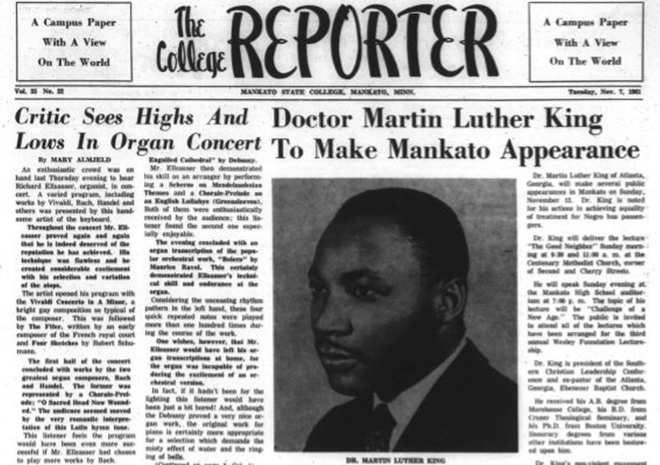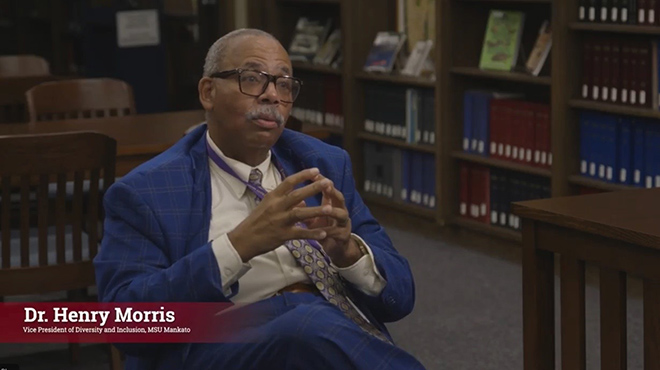Two years before he gave the historic “I Have A Dream” speech in Washington D.C., four years before the 1965 Voting Rights Act he sought and seven years before being gunned down in Memphis, Rev. Martin Luther King, Jr. gave two church sermons and a speech on a November day in Mankato, Minnesota, 1961.
Up to this point, records of that visit have been a few newspaper accounts, an audio recording of his speech and the recollections of those who were there.

Now add a documentary film, one that will add 60 years of context to that quiet visit.
“MLK. 11.12.61” is a film that uses King’s visit to Mankato to interview area residents on not only how King affected our world, but how that visit gave Mankato an inspirational start to its own path toward diversity and equality.
“That’s the theme of the film,” said filmmaker Ryan Sturgis. “Because Martin Luther King came here 60 years ago, we have a mandate to do everything we can to help this cause, by doing everything we know and learning what we don’t.”
“MLK.11.12.61” will premiere online at the University on MLK Day, Jan. 17. The project is presented by the Kessel Peace Institute. It was produced by True Façade Pictures, a film company led by Sturgis and Michael Chaloub. A producer of several documentaries and short films, Sturgis found the King project gave him a more intimate look and deeper appreciation for King, whose talk in Mankato didn’t have the fiery delivery of King’s later addresses—by design.

“Here’s the thing I learned about him,” Sturgis said, “He has a different voice for every venue he’s in. He’s got a voice for when he’s giving lectures, which is what he’s doing in that audio we have—he’s part of a lectureship at the high school—and then he’s got his TV voice when he’s doing interviews on television, and then he’s got his sermon voice. And his sermon voice is what most people remember him by.”
In discussions on the shape of the film, Sturgis and Kessel Institute director Jameel Haque knew they wanted to create a film that had the Mankato visit as a launching point, but not as the overall reason for the film.
“The conversations about this film being more than just an account of an occurrence, and about what we need to do as a culture in diversity and equity suddenly became a really important thing,” Sturgis said.
“What we did with this project, and the thing that always draws me to this medium, is that we did something that is around a long, long time. So when the 70th anniversary comes around, we can watch this, it will still be there.”
The film will premiere online at 1:30 p.m. Monday, Jan. 17. A panel discussion featuring individuals from the documentary will follow.
To register to watch the film, go to https://minnstate.zoom.us/webinar/register/WN_mDf3BtZZST6RQK-96GDGHg
Speak Your Mind